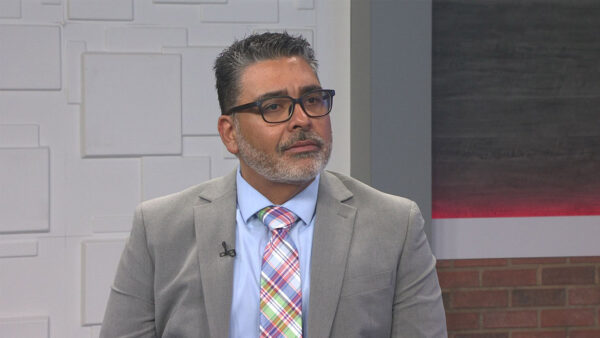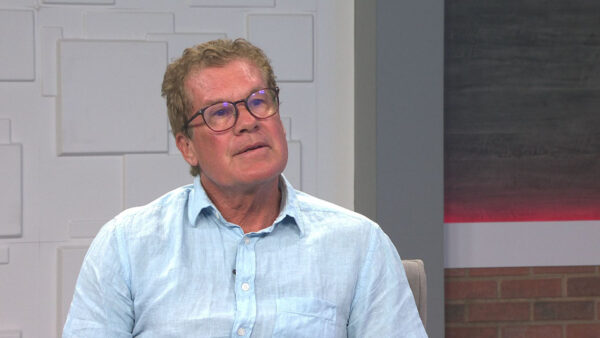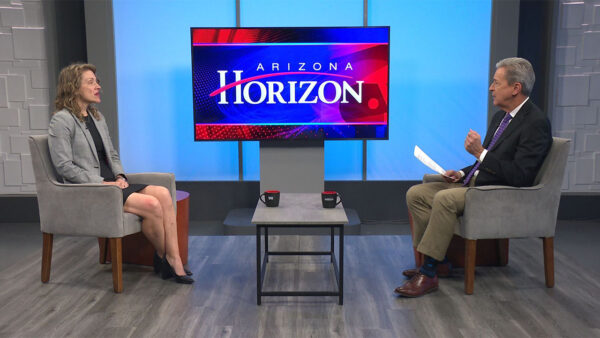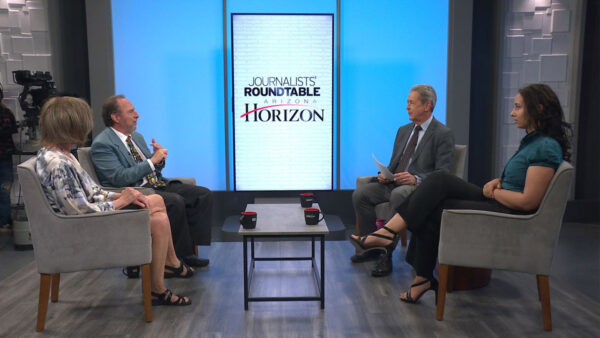Every 10 years, the White House Conference on Aging is held, and this year it will be held in Phoenix. The conference is held to promote and advance ideas to help improve the lives of older Americans. National AARP president Jeannine English and Nora Super, Executive Director, 2015 White House Conference on Aging, will discuss the conference and its goals.
Ted Simons: The White House Conference on Aging will be held at the phoenix Convention Center tomorrow. The conference is held every 10 years to promote and advance ideas to help improve the lives of older Americans. Here now is national AARP president Jeannine English to talk about the conference and its mission. Also joining us is Nora Super, executive director of the 2015 White House Conference on Aging. Good to have you both here, thanks for joining us. Very quickly from where AARP stands, what's this all about?
Jeannine English: This is about making sure that we have a lot of input into what healthy aging is and what people need as they grow older. So healthy aging as well as long-term care, looking at caregiving and looking at the financial resources that are necessary for people as they're getting older so that they can remain independent and live with dignity and purpose.
Ted Simons: And every 10 years now we have these White House conferences on aging. And does the focus change over the years? Talk to us about that.
Nora Super: Sure, as you said, we've had a White House conference on aging sever 10 years since 1961 and as you might imagine, we've changed a bit as a country since 1961. And a number of people turning 65 in this country is unprecedented. We're really at a point in our country's history of looking at how to change and prepare for an aging society. We try do to that with each White House conference on aging, looking at each issue and we do change the focus and the topping areas.
Ted Simons: Some of the focuses, topic areas, what can we expect?
Nora Super: For this year's conference we're focusing on four topic areas, retirement security, healthy aging, long-term supports and services, and elder justice. Those are the four topics that are, you know, what I consider the four pillars of the conference that really provide the foundation for where we're going.
Ted Simons: You both mentioned healthy aging. What does that mean?
Jeannine English: Healthy aging means a lot of things to a lot of people but it means making sure that you're getting the exercise that you need, making sure that you're eating properly and making sure that you are connected to your community because we know that if you're not connected to your community, and you're not eating well and you're not exercising, you can't have a healthy life as you age. So that's really crucial.
Ted Simons: And again, some of these things, financial exploitation and abuse and these sorts of things, are we seeing more of that than we had in the past?
Nora Super: I think we are because there are new ways to have scams with all the electronic devices that people have, the information they put on, there's ways for people to take advantage of older people that we didn't have before. So I think as we have that increased technology, sometimes, unfortunately, it can lead to a greater risk.
Jeannine English: We're finding at AARP, we have an online scam program that you can look at and see what the scams are, and we're finding huge numbers of people dialing in to that. My own mother was scammed, the grandparents scam as well as my mother-in-law who's 95. I mean, it's throughout the country, we're finding people involved in these scams. And it's something that people, you know, older people need to be cognizant of and recognize, that it's prevalent.
Ted Simons: How do you get that message out there?
Nora Super: Part of it is having this White House conference on aging. Phoenix is our second stop and inviting people throughout the community to talk about these issues, have a national conversation about many of these issues and raise awareness so people can be on the lookout for these types of things and know how to avoid it.
Ted Simons: What about things just like engaging in productive work? Being active, being interested, being engaged?
Jeannine English: So important. And many people want to continue to work but the truth is that we have a lot of age discrimination so people can't work. We know that if you lose your job between the age of 50 and 60, you have a 9% chance of getting a new job. Over 60 you have a 6% chance. People want to work and we need to recognize that there is a lot of value there, a lot of wisdom there and they should be able to work. But for those people that can't work, we also need to make sure there's some protections, social security needs to remain strong as a foundation but it can't do everything. So people need to be saving for their retirement, as well.
Ted Simons: And back to the idea of just basically participating in community life, engaging in what's going around you. Thoughts there? I mean, it used to be that people would be flocking to retirement areas. These things, people want to stay home in their communities.
Nora Super: Well, absolutely. And people are engaged more than ever. Since I've been in Phoenix I've had the opportunity to look at some great programs that engage older volunteers with schools, with the homeless population, with other places where not only as volunteers, they find so much more meaning and purpose in their lives and giving back to the community, they find they also receive a lot.
Jeannine English: We have actually at AARP an age-friendly community initiative where we're working with all different cities throughout the country to make sure that as they develop, they are age friendly. You shouldn't have to be an Olympic sprinter to get across the street before the light changes? And that isn't just for older people but that's for people with strollers, as well. We need to make sure that communities allow people to live and age in place.
Ted Simons: With that in mind, common misperceptions of aging?
Nora Super: Common misperception is that people turn 65 and that that they want to live on the golf course and not give back to their community or that they're frail and elderly. People are vibrant, people are living longer than ever before. The segment you had just before on cancer just shows how many advances we've had in medicine that help people live longer. We need to change the way we think about getting older in America.
Ted Simons: Indeed and because baby boomers changed everything from being young to middle-aged, how is that changing the equation?
Jeannine English: 10,000 people are turning 65 every day in this country and we also know that we have this huge boom in the number of people that are turning 80. And it's getting bigger and bigger. So it's changing what we're thinking of as aging. It's also changing how we look at delivering long-term services and support and we're talking about caregivers. We need to make sure that we support the family members that are helping to care for those folks in their 80s so that they don't harm their own health while they're caring for their loved ones.
Ted Simons: So what do we take from the White House conference on aging? What do you want everyone to take away?
Nora Super: We want everyone to see a vision and a future for the next decade of aging, what it means to be an older American, as an opportunity, as a positive thing, not looking at aging as something to avoid but an opportunity to use your experience, and add value to our society.
Ted Simons: All right. Very good. Good to have you both here. Thanks for joining us.
Jeannine English: Thanks so much.
Ted Simons: Tuesday on "Arizona Horizon," former NATO ambassador Kurt Volker joins us for our monthly discussion on foreign affairs. And we'll hear about a study on the cause of car accidents involving teenagers. That's at 5:30 and 10:00 on the next "Arizona Horizon." That is it for now. I'm Ted Simons. Thank you so much for joining us. You have a great evening.
Jeannine English:President, National AARP; Nora Super:Executive Director, 2015 White House Conference on Aging;




















